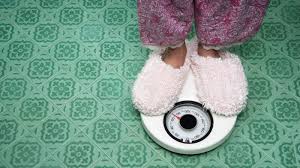When we lose weight, where does the fat go?
The Statistics
We're all familiar with news stories about the steadily rising rates of obesity worldwide. According to the Australian Bureau of Statistics (ABS), the results from the latest National Health Survey indicate that, two thirds (67.0%) of Australian adults are overweight or obese (12.5 million people). Worryingly, one of the largest increases was in our young adults, aged 18-24 years, with 46.0% overweight or obese in 2017-18 compared with 38.9% in 2014-15, an increase of over 7%.
There is overwhelming
agreement in the medical and scientific world that "dieting" doesn't
work in the long-term. Most people who diet not only regain the weight
they worked so hard to lose but often put even more weight back on. However, diet books are consistently on the best
seller lists, and celebrity endorsed diets are some of the most popular
searches on the internet. The most
recent dieting statistics from the ABS reported that in
2011-12, over 2.3 million Australians (13%) aged 15 years and over reported
that they were on a diet. In line with research
from the US and UK it is expected that in Australia this figure is now significantly
higher with between 20% - 30% of us likely to be on a diet at any one
time.

The Simple Science
Even though most of us have at some stage actively tried to lose weight, very few of us understand what goes on inside our bodies during this process.
When we eat more calories than we use - from any type of food - we store this excess in fat cells (called adipocytes) as body fat. Over time this accumulation of fat stores results in weight gain. Body fat is really just a source of stored fuel which is made up of molecules called triglycerides.
The flip side of weight gain, is weight (mostly fat) loss. In purely scientific terms, losing weight is about creating a negative energy balance - where the amount of energy our body is using is greater than the calories we are consuming. This is achieved by:
- reducing the amount of calories we eat
- increasing our physical exercise, or
- a combination of both
When you consume fewer calories than you need, your body relies on its fat reserves for energy, and when people are trying to lose weight, they are generally looking to reduce their stores of body fat.
So, when we lose weight, where does the fat go?
The Short Answer
Body fat stores are broken down through a series of complex biochemical reactions into:
- carbon dioxide (CO2)
- water (H2O)
About 85% is breathed out as CO2 and the remaining 15% is lost as water through our sweat, urine, faeces and breath.
The simple chemistry looks like this:

The Wrap Up
With about 85% of the fat stores that are used to produce energy being exhaled as CO2 you might be tempted to think that to lose weight all you need to do is breath more, unfortunately, it doesn't quite work like that. The simple science tells us that in order to lose weight we just need to eat less and move more.
Without doubt, being overweight or obese increases the risk for many health conditions including; cardiovascular disease, type 2 diabetes, high blood pressure, metabolic syndrome, sleep apnoea, and some cancers. However, there is a widely held misconception that being thin equals being healthy, this simply isn't the case. Health comes in many shapes and sizes.
At Pulse, we understand this, and we understand that the reasons we gain weight and the difficulties of losing it can't be summed up in
scientific equations, for one very simple reason - we are human. Everyone is
different, we eat differently, we move differently, we think differently, our lives are
different.
If you would like to discuss ways to manage your weight, please click on the link below to contact us to find out how we can help you.

